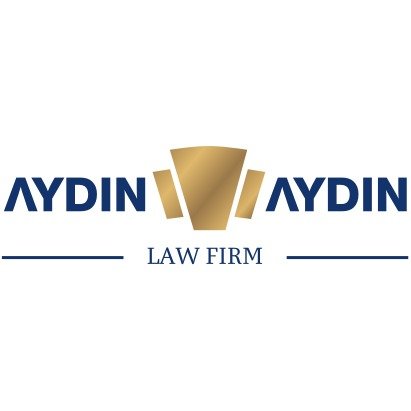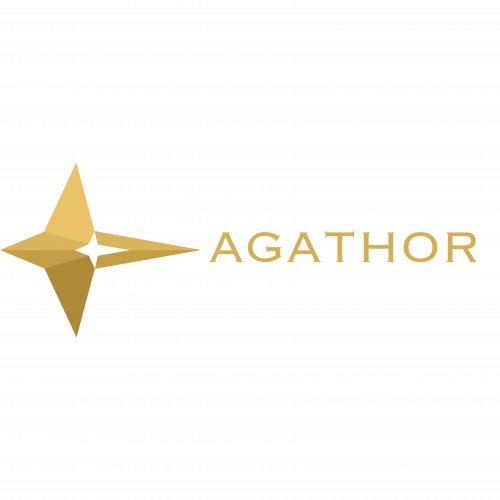Best Public-Private Partnerships (PPP) Lawyers in Ankara
Share your needs with us, get contacted by law firms.
Free. Takes 2 min.
List of the best lawyers in Ankara, Turkey
About Public-Private Partnerships (PPP) Law in Ankara, Turkey
Public-Private Partnerships, commonly referred to as PPPs, are collaborative agreements between public sector entities and private companies to finance, construct, and operate projects or services that benefit the public. In Ankara, Turkey, PPPs are widely used in infrastructure development, including transportation, health care, education, and energy projects. These partnerships help combine public oversight with private sector efficiency and investment, enabling large-scale initiatives that might otherwise be challenging to realize through public funding alone.
Why You May Need a Lawyer
Entering into a PPP involves navigating a complex landscape of contracts, regulations, and compliance requirements. Legal assistance is crucial in several situations, such as:
- Drafting or reviewing PPP agreements to ensure fair and enforceable terms
- Participating in government procurement processes and tenders
- Understanding tax implications and incentives related to PPP projects
- Managing disputes or breaches of contract that may arise during the project lifecycle
- Securing project financing and managing risks
- Ensuring environmental and zoning compliance in Ankara
- Navigating regulatory approvals and permits required for certain sectors
- Assisting with project transfer, termination, or restructuring
Given the high value and public interest in PPP projects, legal representation offers critical protection for both public and private participants.
Local Laws Overview
Public-Private Partnerships in Ankara are primarily governed by national Turkish legislation, complemented by specific local requirements. Key aspects include:
- Legislative Framework: PPP projects are regulated by a combination of national laws such as the Public Procurement Law, sector-specific laws for health, transportation, and energy, and regulations issued by the relevant ministries.
- PPP Models: The most common models in Turkey include Build-Operate-Transfer (BOT), Build-Operate (BO), Build-Lease-Transfer (BLT), and Transfer of Operating Rights (TOR).
- Procurement Procedures: Competitive tendering processes are standard, with transparent bidding overseen by public authorities and regulatory agencies.
- Risk Allocation: PPP contracts carefully allocate construction, financial, operational, and demand risks between the parties based on project specifics.
- Dispute Resolution: Disputes are typically resolved through Turkish courts or, in some cases, arbitration, depending on the contract provisions.
- Local Authority Role: In Ankara, municipal or regional authorities may have additional requirements for permits, environmental reviews, and local content rules.
- Compliance: Ongoing compliance with Turkish labor, environmental, and zoning laws is required throughout the project’s duration.
Frequently Asked Questions
What types of PPP projects are common in Ankara, Turkey?
Typical PPP projects in Ankara include highways, hospitals, schools, airports, energy facilities, and public buildings. The healthcare sector has seen significant PPP growth in recent years.
What is the typical duration of a PPP contract in Turkey?
The duration of PPP contracts varies depending on the project, usually ranging from 10 to 49 years. Larger infrastructure projects tend to have longer terms.
Who oversees PPP projects in Ankara?
Projects are overseen by the relevant ministry or public agency, such as the Ministry of Health for hospital projects or the General Directorate of Highways for road projects. Local authorities may also play a supervisory role.
How are risks distributed in PPP agreements?
Risks are allocated between the public and private partners based on project-specific factors. Construction, financial, and operational risks can be fully or partially transferred to private parties, depending on contract terms.
Can foreign companies participate in Ankara's PPP projects?
Yes, foreign companies are allowed and often encouraged to participate, provided they meet Turkish procurement requirements and register with the necessary authorities.
What is the process for resolving disputes in PPPs?
Disputes are usually resolved through Turkish courts or arbitration, as specified in the contract. Arbitration may be international or local, depending on the agreement between the parties.
Are there any specific tax incentives for PPP projects?
Depending on the sector and project, certain tax exemptions, incentives, or reductions may be available to encourage investment in PPPs. These are set by national regulations and policies.
What types of permits or approvals are required?
Permits and approvals vary by project type and location. Common requirements include environmental permits, zoning approvals, construction licenses, and sector-specific consents from the relevant ministries.
How are PPP projects financed?
Financing often involves a mix of private investment, loans from Turkish and international banks, and, in some cases, public funding or guarantees to mitigate risk.
How can a lawyer assist with PPP projects in Ankara?
Lawyers can provide comprehensive support, including legal risk assessment, contract drafting, negotiation support, compliance reviews, and dispute resolution. Their involvement helps safeguard interests and ensures alignment with Turkish law.
Additional Resources
Several organizations and governmental bodies in Ankara can provide guidance or information on PPPs:
- The Ministry of Treasury and Finance - PPP Department
- The Public-Private Partnership Platform Turkey
- Relevant ministries such as the Ministry of Health, Ministry of Transport and Infrastructure, and Ministry of Energy and Natural Resources
- The Ankara Chamber of Commerce for local business insights
- Legal associations specializing in public and infrastructure law
- Municipal or provincial directorates relevant to the project's sector
Next Steps
If you are considering participating in, initiating, or encountering a dispute related to a PPP project in Ankara, seeking professional legal advice should be your first step. Start by identifying law firms or legal advisors experienced in Turkish PPP regulations and Ankara-specific requirements. Prepare a summary of your project or issue, gather all related documentation, and arrange an initial consultation to discuss your needs and options. Early legal involvement is key to ensuring a smooth and compliant PPP process, from bidding and contracting through to completion and operation.
Lawzana helps you find the best lawyers and law firms in Ankara through a curated and pre-screened list of qualified legal professionals. Our platform offers rankings and detailed profiles of attorneys and law firms, allowing you to compare based on practice areas, including Public-Private Partnerships (PPP), experience, and client feedback.
Each profile includes a description of the firm's areas of practice, client reviews, team members and partners, year of establishment, spoken languages, office locations, contact information, social media presence, and any published articles or resources. Most firms on our platform speak English and are experienced in both local and international legal matters.
Get a quote from top-rated law firms in Ankara, Turkey — quickly, securely, and without unnecessary hassle.
Disclaimer:
The information provided on this page is for general informational purposes only and does not constitute legal advice. While we strive to ensure the accuracy and relevance of the content, legal information may change over time, and interpretations of the law can vary. You should always consult with a qualified legal professional for advice specific to your situation.
We disclaim all liability for actions taken or not taken based on the content of this page. If you believe any information is incorrect or outdated, please contact us, and we will review and update it where appropriate.













